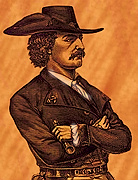|
Hieronymous Alloy suggested I make a new thread for discussing reader privilege and author intent in the book barn subforum so I have done so. This thread is for discussing reader privilege and author intent across all literary genres and social media like twitter and facebook and instagram and so on. The "I sexually identify as a attack helicopter" story controversy -discuss it here! Authors of any literary genre getting dogpiled on the internet for old posts or views they have posted online -discuss it here! Roving packs of literary critiquers turning in on themselves on social media in increasingly more granular purity tests -discuss it here! PM me or quote me in this thread if you want anything added to this OP, anything you want added to the OP will be done so with zero commentary or editing other than <XYZ-Person requested this be added>. (I almost never check PM's so it's better and much faster just to quote me in this thread. if I never respond to re-quotes at me, you're probably on my ignore user list.) quantumfoam fucked around with this message at 17:30 on Aug 17, 2021 |
|
|
|

|
| # ? Apr 24, 2024 12:23 |
|
Alright here's a hot take which I'm sure might ignite some very strong opinions. I suppose this goes into the "purity test" section. https://twitter.com/scumbelievable/status/1404829158790909958 Felker-Martin is a "filthcore" author and trauma survivor. She is very suspicious of the idea that books can harm a person and critical of the language people use when saying that a book has violated their consent by not posting content warnings. Other authors have also weighed in on this issue. https://twitter.com/NMamatas/status/1403521735006117890 Carmen Maria Machado, author of "Her Body and Other Parties" has this to say about content warnings: "ďNo one asked me & I promised myself I wouldnít dip into the discourse, but if you think centralized trigger/content warnings wonít affect books you have no understanding of how badly the film rating system in the US has affected American films in meaningful and devastating ways,Ē she wrote in a thread that directed readers to watch the 2006 documentary, This Film Is Not Yet Rated." (The tweets involved have since been deleted). As for my opinion, I suppose I feel that content warnings have the capacity to both spoil the content of the books to an extent, but also I've never minded content ratings on films. However content ratings on films have definitely restricted which films make it to cinemas, and I do wonder if certain books with content warnings would be passed over in being put on bookstore shelves because they advertise that they have objectionable material that customers might complain about, meaning that stores and online retailers might be incentivized to push books that don't present any obviously controversial content to the forefront. The closest example I can think is how Barnes and Nobles doesn't stock a lot of manga that contains excessive violence, like Berserk, because it advertises its bloody content through shrink wrapping and an explicit content sticker.
|
|
|
|
So is this how stars go supernova?
|
|
|
|
Man I didnít realize people were frothing about content warnings. Guess Iím not shocked. I donít really think itís a big deal on the surface if they exist. Itís cool to want an experience that feels inviting and welcoming in the sense that if youíve had some negative past experiences, you donít want those shoved in your face at a random turn when youíre just doing your day to day. But that Felker-Martin take is real patronizing. Most therapists Iíve encountered acknowledge selfhood and donít force transformative or challenging experiences on their clients, but that doesnít mean they want clients shoved into unsettling encounters that might do damage to them. Itís kinda like she wants to believe that everyone should be confronted to deal, and I think thereís value in that, but this is a pretty poo poo way of expressing that viewpoint. I canít speak to the ephicacy of the study. My personal take is that content warnings divorced of political, industry, and visibility concerns are just fine. Let people curate their poo poo, it doesnít really effect anyone other than them anyhow. But the reality is that you canít divorce this stuff from industry, political, or visibility concerns because wherever thereís a lever of power to pull, someoneís going to pull it for a mess of reasons. So itís just a question of whatís prioritized. Felker-Martin has a lot of skin in the game in acting the way she does. Content warnings would probably smoke her bottom line. But I mean subversion is her stock and trade, so looking at her in particular, I canít see her career turning serene just because she wins the content warning debate. Basically, on a personal level, I donít give a poo poo about CW stuff 99% of the time, but that 1% that Iíve encountered a warning about content itís made a very big difference for me. To be clear Iím talking like the absolutely most reprehensible poo poo out there, not garden variety violence or whatever. At the end of it, itís nobodyís business but oneís own what sort of thing they engage with. Allowing people to make informed decisions is a good thing. And trying to sand away all things confrontational is loving stupid because thatís not how life works, but when youíre patronizing readers by telling them theyíre working against their own theraputic interests, youíre just as bad. Itís a super personal thing and itís really none of anyoneís business how a reader chooses to engage.
|
|
|
|
BurningBeard posted:To be clear Iím talking like the absolutely most reprehensible poo poo out there, not garden variety violence or whatever. I have never read a reprehensible book.
|
|
|
|
Yeah there's been a few books I've read where it was made clear to me that what I was getting into was gonna be real gross. The Sad Tale of the Brothers Grossbart was not a book I was able to finish (I think I got 10% in) just because it was so unpleasant to read. The content warnings came from people who were recommending it saying "this book is real hosed up" and not from the book's blurb, which makes it sound like they do some villainous stuff, but it didn't capture the extent of how viscerally what they do is described. If i had gone into that book blind based on the blurb I might've been really pissed off that it was so over the top and felt like I'd wasted money. As it was, I went "well I was expecting this, but it's still more than I can take" and put the book aside. I wouldn't say the book triggered me or brought up any past trauma or anything, but that's because I've been lucky in my life to have experienced very little that could be called traumatic, the closest being some family members dying of illness when they were already up there in years.
|
|
|
|
clinical research into content warnings isn't a hot take, its a good idea. why would it be a hot take to study them. the research so far has been frankly very negative for warnings. At best they are insignificant. at worst they prime anxiety responses and centralize trauma. here are some of the major studies: https://journals.sagepub.com/doi/full/10.1177/2167702620921341 https://www.gwern.net/docs/psychology/2020-bellet.pdf https://journals.plos.org/plosone/article?id=10.1371/journal.pone.0247579 https://www.researchgate.net/profil...er-warnings.pdf if there is clinical evidence that trigger warnings accomplish something, i have yet to see it. obviously this is with the caveat that social science research is pretty hard to do in a meaningful way. i want to emphasize the research because there is a core belief on all sides that trigger warnings are DOING SOMETHING and the question is if its worth the cost of labeling, marginalizing explicit material, etc. what if this assumption is false? what is the argument for warnings if they don't do anything?
|
|
|
|
Ccs posted:
i think its telling you went straight to her identity. Copernic fucked around with this message at 17:50 on Aug 17, 2021 |
|
|
|
Ccs posted:Yeah there's been a few books I've read where it was made clear to me that what I was getting into was gonna be real gross. The Sad Tale of the Brothers Grossbart was not a book I was able to finish (I think I got 10% in) just because it was so unpleasant to read. The content warnings came from people who were recommending it saying "this book is real hosed up" and not from the book's blurb, which makes it sound like they do some villainous stuff, but it didn't capture the extent of how viscerally what they do is described. Yeah thatís the thing. The reason I canít care over much about CW poo poo is because thereís plenty of people I can ask about a book if it even matters to me in the first place. It usually doesnít. Your experience is pretty much how mine has gone every time Iíve encountered something Iíd rather not read. But I can say that Iíve never put down a book on the basis of content, more that Iíve not picked up some books on the basis of bad reputation from folks I know and trust. e: Thanks for the studies Copernic. It does make an intuitive kind of sense to me. unattended spaghetti fucked around with this message at 17:57 on Aug 17, 2021 |
|
|
|
Copernic posted:i think its telling you went straight to her identity. The only part of her identity I highlighted was that she's a trauma survivor, in order to head off accusations that she can't speak about trauma due to not experiencing it herself, when she has.
|
|
|
|
It just seems like content warnings would be yet another way to discriminate against already marginalized folks. Every time something liket his plays out the content warnings for say, black authors, will be more dangerous sounding, or LGBTQ+ writers will be told their book is unmarketable because they'll have to put a content warning. And even essentially the same content will cause different warnings, a cis white woman being date raped in a novel will be a cause for "a mild uncomfortable content with some sexual violence" whereas if it's a trans person it'll be "extremely graphic content that may cause psychological harm to readers". And if it isn't really helping the folks it's supposed to help then it hardly seems to have much point.
|
|
|
|
I'm sympathetic to CW/TW because the gutpunch of a trauma response can really ruin a day, but strongly disagree with the direction we are trending with creators being forced to TW/CW their own works. Nobody but the reader can possibly know what will set off a trigger, and it seems far more useful to everyone to have these TW/CW warnings be handled in a grassroots, community oriented way. https://www.doesthedogdie.com/ exists for this purpose. Otherwise, part of what makes literature and art in general so special is it's ability to gutpunch on occasion, and yes, sometimes that includes emotional landmines. I do have trauma triggers, but I am at a point in my life where I don't need TW/CW, and having literature be neutered from the source would take away from the experience.
|
|
|
|
pseudanonymous posted:It just seems like content warnings would be yet another way to discriminate against already marginalized folks. Every time something liket his plays out the content warnings for say, black authors, will be more dangerous sounding, or LGBTQ+ writers will be told their book is unmarketable because they'll have to put a content warning. And even essentially the same content will cause different warnings, a cis white woman being date raped in a novel will be a cause for "a mild uncomfortable content with some sexual violence" whereas if it's a trans person it'll be "extremely graphic content that may cause psychological harm to readers". I don't think it's a matter of 'would', it's already happening. https://twitter.com/silviamg/status/1405374352728625153 It seems that on places like Storygraph, POC authors get a lot more fan-contributed content warnings than white ones. There's even POC authors who had TW/CWs added for stuff that straight up wasn't in the text, including authors who already voluntarily included their own CWs at the start of their novels. I don't think on its own this is a slam dunk against CWs in every circumstance but it's clear that they're pretty easily weaponised against marginalised authors. Just as much as review bombing or whatever. And this isn't even touching on how they'd be used when evaluating what gets published or stocked.
|
|
|
|
Copernic posted:i want to emphasize the research because there is a core belief on all sides that trigger warnings are DOING SOMETHING and the question is if its worth the cost of labeling, marginalizing explicit material, etc. what if this assumption is false? what is the argument for warnings if they don't do anything? I think it's about a feeling that trauma survivors are being heard and acknowledged rather than any actual, contextual benefit - at least at the point where there's now a discussion on whether it should be applied to art, let alone the horror genre specifically. (To be clear I do not think this is an argument in their favour)
|
|
|
|
Related, folks from the BBC talking about the ethical limits of gore in fiction. https://mobile.twitter.com/scumbelievable/status/1429157035476664326  The use of the word ďinclusiveĒ here is like a land mine. Ccs fucked around with this message at 23:32 on Aug 21, 2021 |
|
|
|
Ccs posted:The use of the word ďinclusiveĒ here is like a land mine. I mean, the idea of "sophisticated movies which you could watch with a ten-year-old" actually sounds to me like the Holy Grail. Not everything has to be edgelord in any direction an edge might be found today. Basically, the dude is saying he wants better PG or lighter PG-13 movies. That seems reasonable.
|
|
|
|
The argument seems so wishy washy to me though, with the idea that additional regulations on creative content will produce the kind of ideal content they want. They don't want censorship, but they do want regulations. They want creators to set their "creative dials to inclusive" and then refer to the comics code authority which mostly just led to a lot of corny stories where silver age superman got hit with different colors of kryptonite that gave him new wacky powers each issue. Especially since we're talking about an age in movies where the biggest films are Marvel, completely gore-less all ages media. Also PG-13 movies are way lighter today than they were just a few decades ago.
|
|
|
|
ulmont posted:I mean, the idea of "sophisticated movies which you could watch with a ten-year-old" actually sounds to me like the Holy Grail. Not everything has to be edgelord in any direction an edge might be found today. Not everything has to be edgelord but that's not a problem solved by censorship, its a market trend and you can argue that there's been growing resistance and movement away from it for years. He's upset by the pencil death in The Dark Knight, a movie old enough to have its Bar Mitsvah, but says nothing of the dominant popularity of Marvel films that, while not sophisticated, are absolutely acceptable for family audiences. Edgelord poo poo, like Joker, will persist for as long as there's a segment of the population that wants it and will pay for it. Mind you, the Hayes Code didn't help anybody. It severely limited not just depictions of sex and violence, but political expression and even the abilities for villains to triumph, depending on how strictly the code was applied. Yes, you got movements like film noir out of it that found the cracks in the code to probe moral ambiguity and artists still managed to make moving, classic works. But that doesn't mean it wasn't censorship and that their speech and ability to express themselves wasn't severely limited. For every case of Hitchcock showing a train entering a tunnel, there's plenty of counterexamples of films that were watered down and held back by the code. Likewise, the explosion of graphic exploitation films that came in the 1970s after the fall of the code could be considered over-the-top -- sometimes compensating for the decades of repression -- but their gratuitousness is also sometimes a virtue. You could never make Taxi Driver under the code. But the MPAA, of course, is also a major issue. Studios will not allow directors to produce NC-17 ratings because mainstream theaters won't show them and they're considered box office poison. So filmmakers are frequently hobbled by demands to cut sex, cut violence -- a trend that inevitably led to further repression of women's pleasure (cunnilingus was a no go, full frontal male nudity far more restricted than women), queer voices (two guys kissing? That's an R at minimum), works by people of color (if they were even getting funded in the first place), etc. You can look at music too and the advent of the Parental Advisory sticker. Now this is an interesting example in that eventually the sticker became a selling point for records, because teens would of course want the forbidden fruit, but that then of course resulted in artists deliberately trying to get the sticker and pushing them into a position where being edgier was a market necessity. Hell, the same thing has happened in film -- PG-13 is the sweet spot because teens don't want to see PG rated movies because they're seen as for children so they'll add a little extra edge to get the rating up. Now, a lot of retailers like Walmart for a long time refused to carry albums with Parental Advisories, which in the pre-internet era limited availability in rural markets that didn't have specialty music shops. It influenced artists both ways. So, in short, any sort of formalized Content Warnings system for books would inevitably lead to a similar dynamic. Whether that's because retailers will be cautious about putting books that depict sexual violence (while other forms of violence will probably be acceptable), or because artists feel like they need to have content warnings to bring in an audience, or otherwise. It will absolutely change the way books are written and the way that publishers select and edit what gets published. I'm not blabbering about the Woke Squad or whatever, but it is frustrating that people on the left (in the name of protecting others) have effectively found themselves in the same position the religious right were in decades ago -- and are mostly upset about the same things! It's still concerns about too much sex and too much violence and I don't think anyone realizes how backwards it is to be in favor of censorship in the name of progressive equality. It's all a bit Harrison Bergeron. TrixRabbi fucked around with this message at 17:58 on Aug 23, 2021 |
|
|
|
TrixRabbi posted:Not everything has to be edgelord but that's not a problem solved by censorship You may have missed the "So I don't want censorship." sentence and the "I am no fan of censorship" title, or otherwise you're agreeing with the author for no reason before going off to on a lot of words to talk about censorship. He's just whining about one movie he didn't like that had a scene he wasn't expecting and, to quote myself: "Basically, the dude is saying he wants better PG or lighter PG-13 movies. That seems reasonable." I mean, I'd like better PG or lighter PG-13 movies too, but I don't have a column to annoy other people about it.
|
|
|
|
What next? No sex in pornos?
|
|
|
|
Collateral posted:What next? No sex in pornos? Thinking of making a little extra money and starting an OnlyFans
|
|
|
|
What is reader privilege?
|
|
|
|
I once got stabbed, have a 12" scar*, it's was very nasty. I have decided you cannot read splatterpunk, because you are using your non stabbed privilege to oppress me, as I cannot abide it. I think that's what it means. I am probably wrong though. *it also cut a nerve 
|
|
|
|
Trigger warnings are mostly replaced by content warnings and content warnings are, in general, a voluntary courtesy offered to victims of trauma so they do not have to unexpectedly relive intensely traumatic events. It's a nice thing to do. Those who are traumatized are responsible for their own reactions and can't really require anyone to change their lives around them, it's again just being thoughtful. Of course, when edgelords on the internet learned about things like "having empathy" they decided it was the worst thing ever and that's how we get "OH R U TRIGERRD HUH" bullshit for years and years.
|
|
|
|
Aren't Content Warnings and Trigger Warnings basically the same thing at this point, just that the term "Trigger" got mauled by the discourse and everyone made fun of it so it just switched to "Content"? I'm not really anti-CW on an essay or whatever, can agree it's a courtesy above all else, but I do find the studies mentioned earlier interesting that say CWs often reinforce the idea of trauma as a core part of someone's identity, which flies in the face of therapy standards that aim to help people move past trauma rather define themselves by it. And a LOT of online communities rally around the idea of trauma being an identity thing, which just seems doomed to foster more depression and anxiety. But I'm not a psychologist so what do I know.
|
|
|
|
TrixRabbi posted:Aren't Content Warnings and Trigger Warnings basically the same thing at this point, just that the term "Trigger" got mauled by the discourse and everyone made fun of it so it just switched to "Content"? That is kind of because a lot of online communities define themselves that way. So more an identity of the group rather than the individual, with all the stupidity that groups/gangs/cliques indulge in. There are people who have very little control over their own lives who find themselves in a position of control (or influence) over these kind of groups and it can go to their heads. There is an argument to be made that this is just the nature of any people in any group, not just fiction.
|
|
|
|
TrixRabbi posted:Aren't Content Warnings and Trigger Warnings basically the same thing at this point, just that the term "Trigger" got mauled by the discourse and everyone made fun of it so it just switched to "Content"? CW are more accurate anyway. People might not wish to encounter content in certain themes that don't necessarly cause a trauma trigger on them. And the people who make fun of trauma triggers are the absolute scum of the earth. The important part of any sort of opinion on whether warnings are bad or good or neither in terms of someone's therapy and trauma is that it's absolutely not the business of anyone who's not the therapist or trauma victim and people can either choose to do CW's or not that's about as much input as they get in the process.
|
|
|
|
I took a nonfiction class in grad school that involved reading memoirs about suicide and childhood physical abuse, and that whole semester was a huge downward spiral for me. One of the books was so upsetting to me that I threw it at a wall mid-sentence, something I have never done before or since. It wasn't necessarily a class about reading extremely morbid nonfiction, that's just the sort of direction the professor had taken it. That same semester, there was a faculty discussion group about the merits of trigger warnings, and it was basically 5 faculty professors tut-tutting people who want trigger warnings while me and another grad student sat quietly. After it was over, we talked and confided how some of those books had really upset us, not because it was grim subject matter but because it had taken us back to our own traumatic experiences. I had to take a medical leave that semester because my mental health got so bad. It wasn't just because of the books; I had a lot of bad stuff going on at the time. At that point I hadn't been able to receive a diagnosis of PTSD so I had no treatment or coping mechanisms in place. But having to read 300 page triggering books every week and discuss them and write about them really did not help my mental health, and because it was grad school there was a ton of pressure that was like "What? You're a grad student. This is what you signed up for, are you too weak to handle it?" All of this is to say.... I don't know. That was specifically for school, and not the publishing industry. But it was right around the time the trigger warning debates were in full force, and I noticed there was a lot of this toxic posturing going on where it was like "we are academics. College courses don't care about your hurt feelings" when the reality of it was more like "I wish I wasn't crying in a closet at 11 in the morning again." On the other hand, my favorite books are ones that aren't afraid to tackle difficult subjects to try to find meaning and resilience. I don't know if I've ever encountered a novel in my personal life that's blindsided me with its content. Book releases and cover jacket synopses usually make it a selling point to say things like "a raw, challenging book about _______." I made a vow to myself that if I ever teach a lit class, I will make it a very clear policy that if a book is upsetting to you then there would be alternative reading material you could work on instead.
|
|
|
|
Like everything else, warnings have been twisted to the point where something to prevent actual trauma triggers has become people whining about Narnia being offensive to furries, and thus any actual value has been stripped away so morons can posture on the internet. That said, I can certainly understand the desire not to be unpleasantly surprised by stuff like Marlon James' piss rape hyenas even as someone not struggling with trauma.
|
|
|
|
|
TheGreatEvilKing posted:Like everything else, warnings have been twisted to the point where something to prevent actual trauma triggers has become people whining about Narnia being offensive to furries, and thus any actual value has been stripped away so morons can posture on the internet. No, CWs are used all over the place all the time, and with no real issues. Edgelords certainly hoped to ruin them but normal people are using them regularly. They're fine.
|
|
|
|

|
| # ? Apr 24, 2024 12:23 |
|
Health Services posted:What is reader privilege?
|
|
|


















